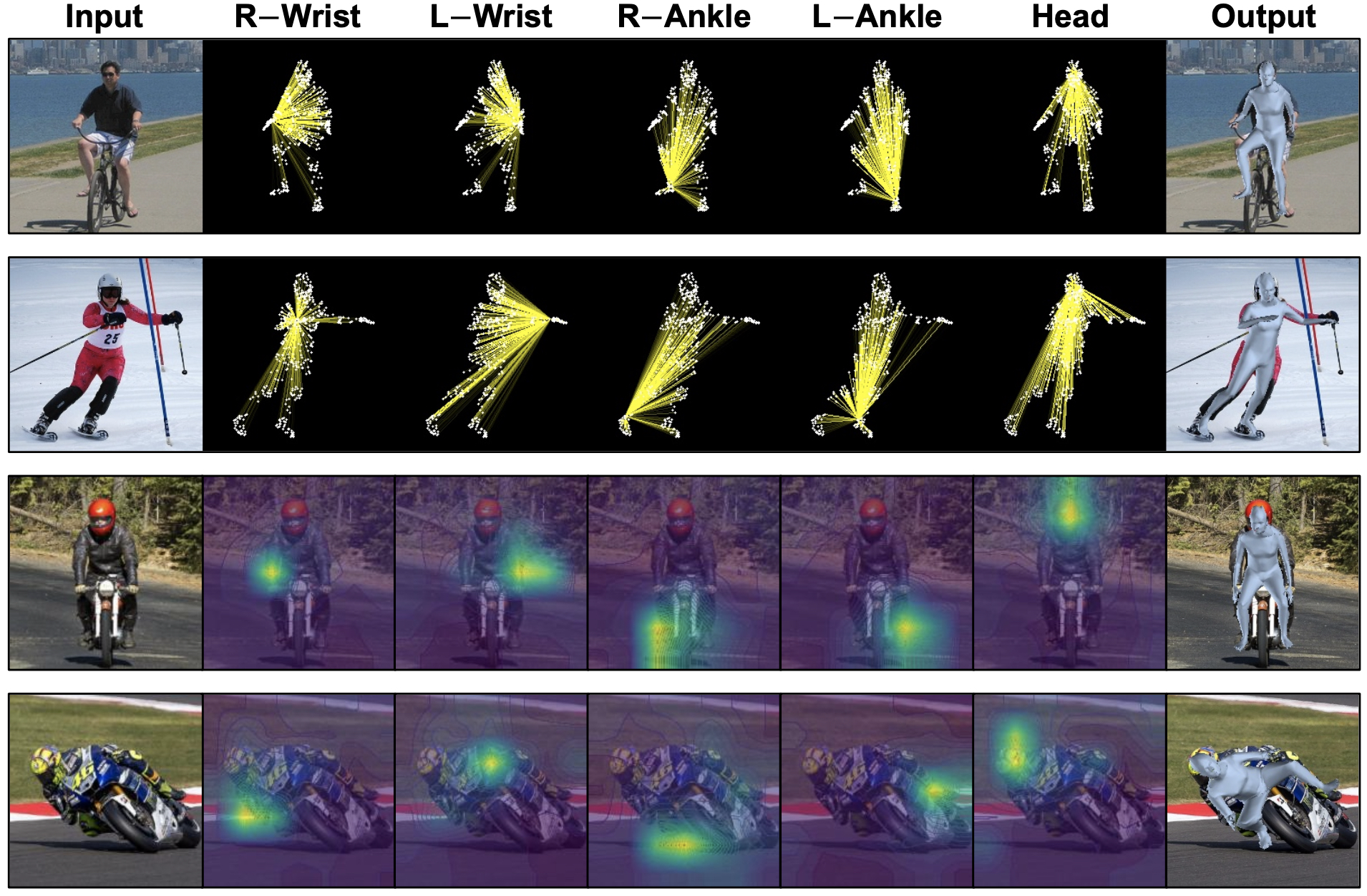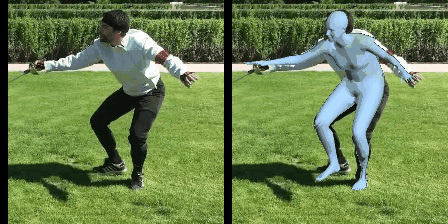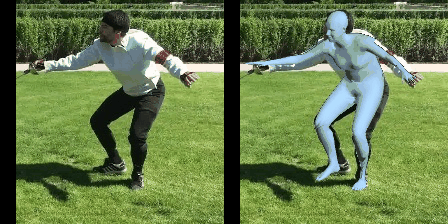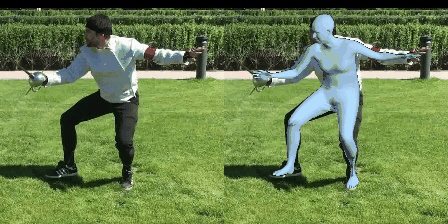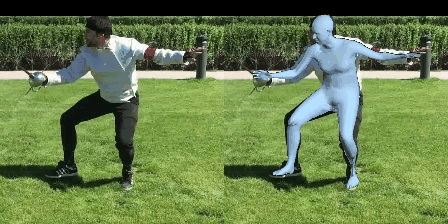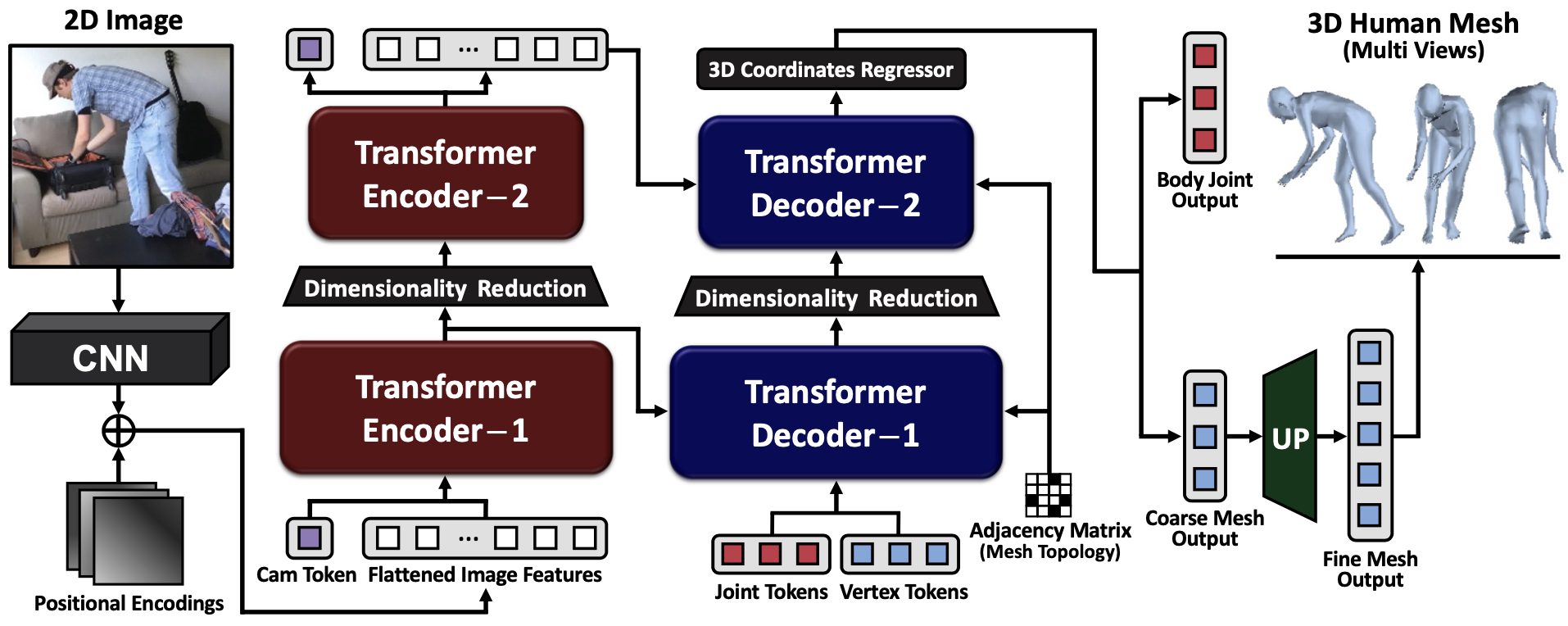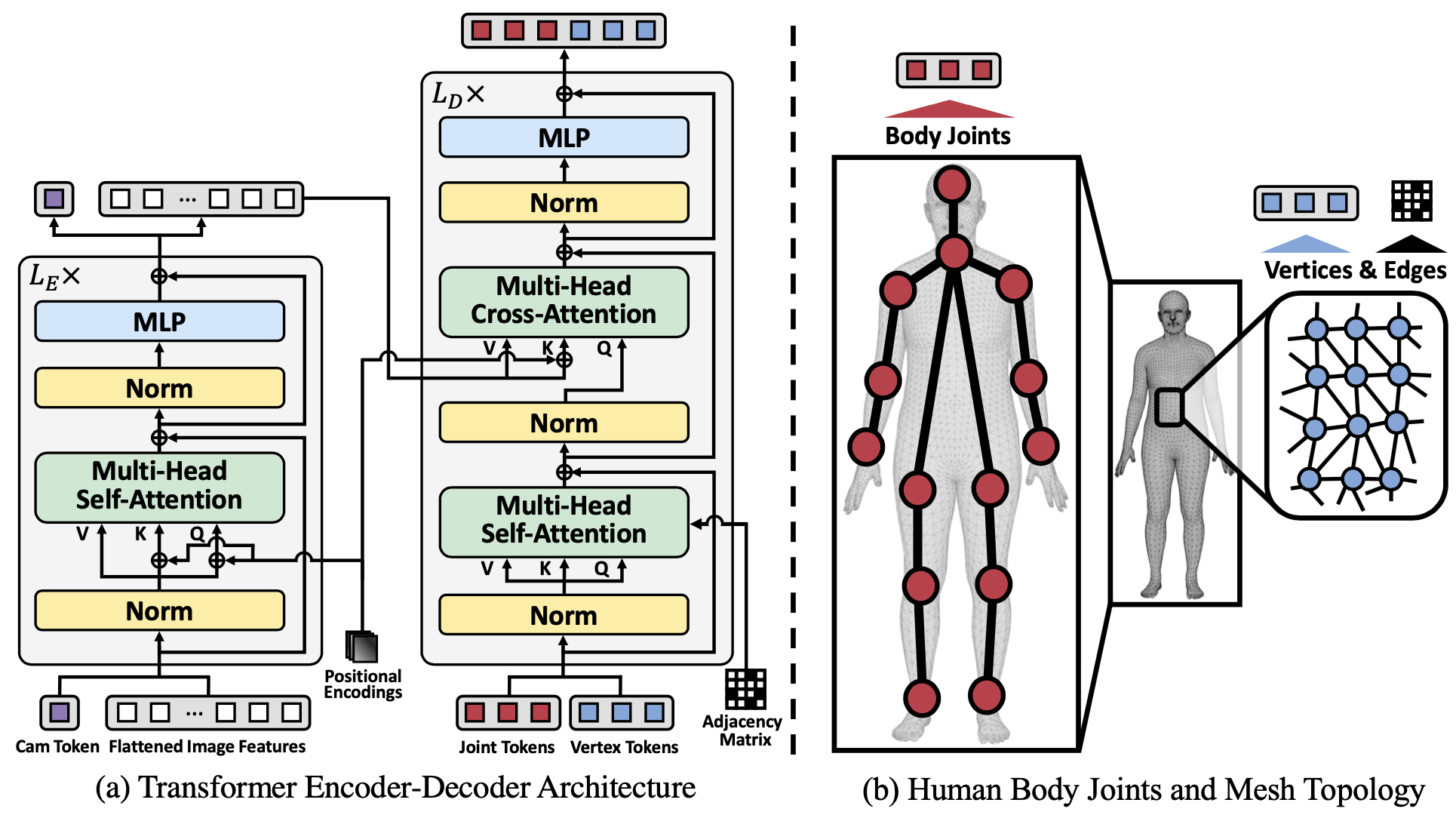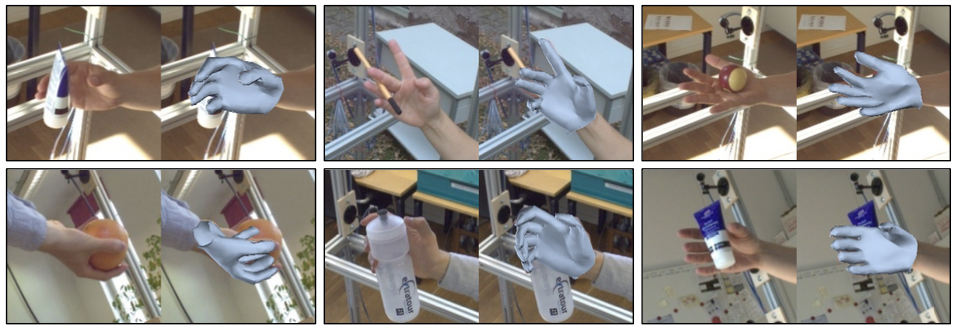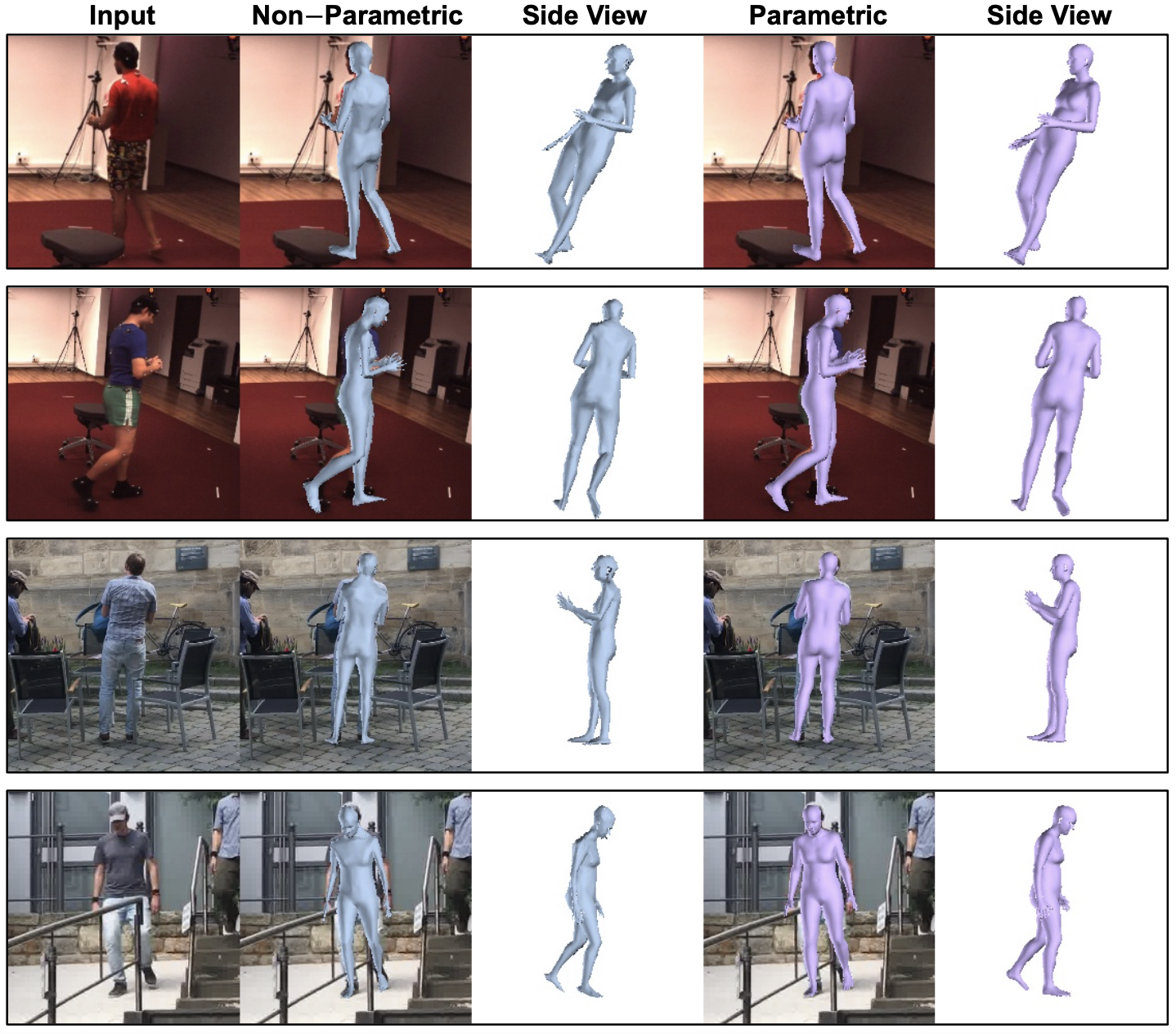|
Transformer encoder architectures have recently achieved state-of-the-art results on monocular 3D human mesh reconstruction, but they require a substantial number of parameters and expensive computations. Due to the large memory overhead and slow inference speed, it is difficult to deploy such models for practical use. In this paper, we propose a novel transformer encoder-decoder architecture for 3D human mesh reconstruction from a single image, called FastMETRO. We identify the performance bottleneck in the encoder-based transformers is caused by the token design which introduces high complexity interactions among input tokens. We disentangle the interactions via an encoder-decoder architecture, which allows our model to demand much fewer parameters and shorter inference time. In addition, we impose the prior knowledge of human body's morphological relationship via attention masking and mesh upsampling operations, which leads to faster convergence with higher accuracy. Our FastMETRO improves the Pareto-front of accuracy and efficiency, and clearly outperforms image-based methods on Human3.6M and 3DPW. Furthermore, we validate its generalizability on FreiHAND.
|
